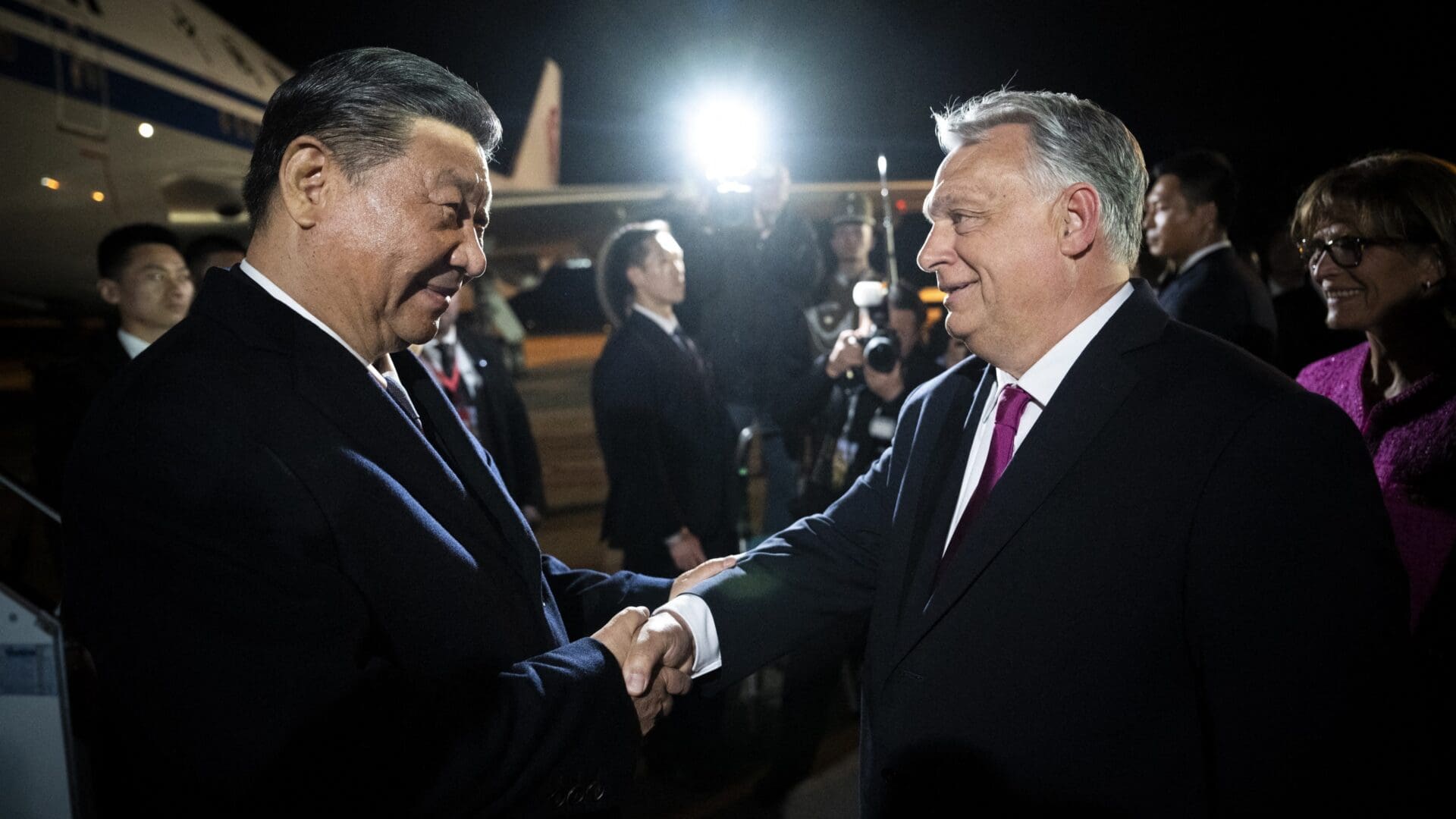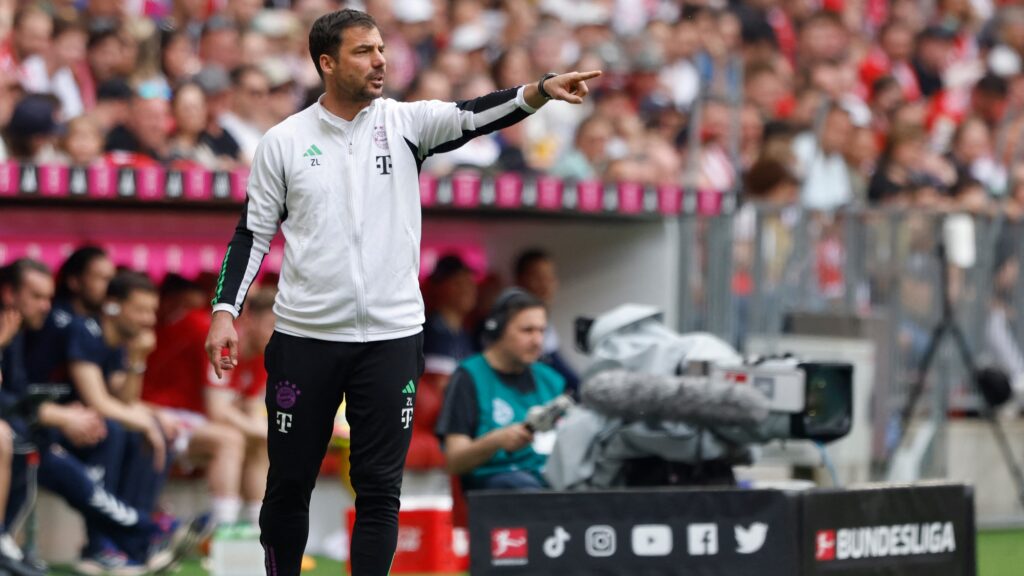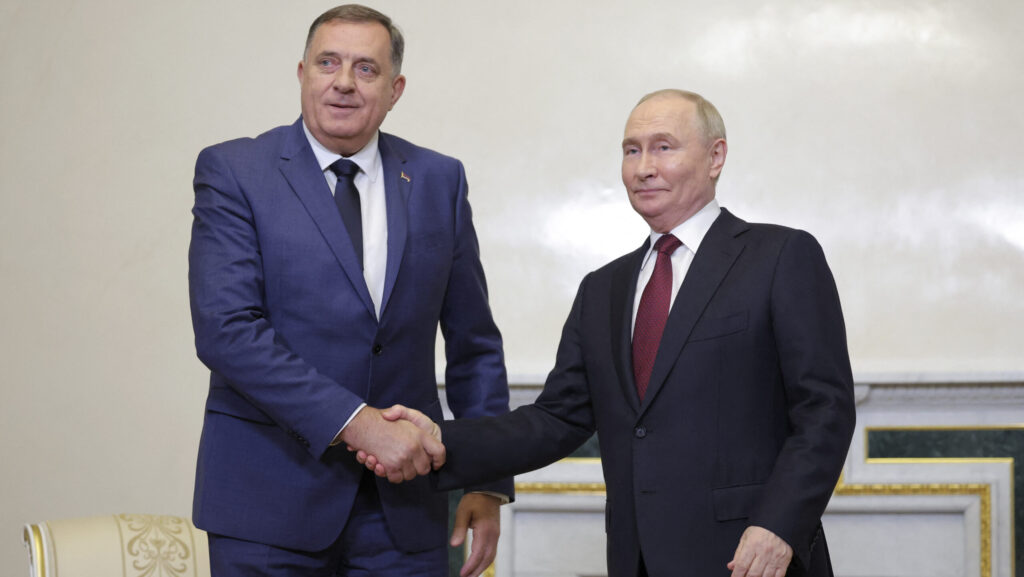The following interview was first published on Magyar Nemzet.
Chinese President Xi Jinping visited Europe for the first time in five years, and his three-stop tour—the last stop of which is Budapest—is primarily about business and the development of economic relations. The Chinese president is only visiting two EU member states, Hungary and France. According to Carlos Roa, an American geopolitical analyst, it is therefore not surprising that Xi’s visit to Budapest is viewed with concern in the West. In addition, Orbán’s meeting with Xi Jinping will take place on Europe Day. The guest researcher of the Danube Institute also talked about the concept of HAIKU states, which helps to understand how Hungary can balance with the great powers in the multipolar world order.
Xi Jinping’s visit to Europe—the first in five years—is expected to be mainly business. The Chinese president is coming primarily to conclude new deals in the three countries he visited: France, Serbia, and Hungary. According to Carlos Roa, a guest researcher at the Danube Institute, Western analysts view the visit of the large Chinese delegation with concern for this very reason, as the trip seems more like a geopolitical signal. Xi is expected to be in Belgrade on the 20th anniversary of NATO’s bombing of the Chinese embassy there, and his expected meeting with Viktor Orbán is on 9 May, which coincidentally is Europe Day. ‘One anniversary is perhaps a coincidence, but multiple at once makes people take notice and suspect that Beijing intends to highlight the internal divisions within the West. Add to this some recent developments — such as Hungary’s new security agreement with China, which permits Chinese police to patrol within the country, which has already triggered significant backlash — and such concerns have strong merit’, Roa added.
According to the Danube Institute’s visiting fellow, the flip side to this is that Europe is in a delicate position. In 2022, imports made up nearly 47 per cent of European GDP, making it almost five times more dependent on imports than North America. ‘Pursuing a policy of decoupling, which is being advanced by hawks, could not only throw the EU into turmoil, but also permanently destroy living standards’, the American geopolitical analyst explained.
HAIKU States: Hungary as an Emerging Middle Power
We also asked Carlos Roa about his recently published study on the HAIKU states, in connection with which he said that the HAIKU countries—composed of Hungary, Azerbaijan, Israel, Kazakhstan, and the United Arab Emirates (UAE)—are a proposed strategic grouping of states possessing unique geopolitical characteristics. According to the analyst, three of these are vitally important. First, each HAIKU state can be characterized as a rising middle power. These nations are not the largest or most powerful on their respective continents, but they wield significant influence in their respective regions due to their unique geographical locations, relative economic strength, and their relationships with their neighbours.
Second, the HAIKU states all have what is called a ‘multivectoral foreign policy’. ‘This term, while technical, essentially means that countries pursue multiple avenues of diplomacy and trade, ensuring they remain open to cooperation with various global powers while safeguarding their sovereign interests’, explained Roa. For instance, Israel and the UAE have significantly diversified their international relationships in recent years, engaging more deeply not just with Western powers but also with nations across Asia and Africa.
Third, there is the ‘integrative power’ of the HAIKU countries, which is critical.
This concept refers to countries’ ability to forge and facilitate connections—whether they are economic, political, or cultural—across different regions. According to Roa, each HAIKU state acts as a bridge within its region, connecting diverse cultures and economies. For example, Kazakhstan links the large economies of Russia and China, Israel serves as a pivot between the West and the Middle East, and the UAE stands as a hub for commerce and finance between the West, the Middle East, and South Asia.
The Danube Institute’s research fellow highlighted: what makes the HAIKU concept particularly relevant today is the multipolar nature of the world order, where the traditional power blocs led by the United States and, to a lesser extent, Russia and China, are increasingly unable to fully dictate global alignments by themselves. That is not to say that these countries aren’t still powerful; they certainly are. What matters, though, is that their ability to enforce their agenda is decreasing, explained Roa. Given this, and given the rising dangers of a multipolar world, the HAIKU states must adopt pragmatic diplomacy, the expert emphasized. This involves balancing relationships with larger powers while promoting regional stability and economic growth. By doing so, they can enhance their international stature and ensure a favourable position in the global order, without becoming pawns in the strategies of more dominant nations.
Connecting Instead of Disconnecting
Regarding the strategic advantage for Hungary of being one of the HAIKU states, Roa said that for Hungary, being part of the HAIKU states offers several strategic advantages. As a landlocked country in Central Europe, Hungary’s geopolitical and economic stability is heavily influenced by its relationships with neighbouring countries and major powers. The HAIKU framework allows Hungary to diversify its relations, ensuring it is not overly dependent on the European Union or influenced by the Russian Federation. It also positions Hungary as a critical interconnector in trade and energy routes spanning from the Middle East to Europe, enhancing its role in global logistics and economic networks.
Roa thinks that the opportunities for cooperation among the HAIKU states are vast and varied. Economically, these countries can collaborate on energy projects, technology exchanges, and infrastructural developments, leveraging their geographical and strategic positions to enhance each other’s access to new markets and investment opportunities. Politically, they can provide mutual support in international forums, advocating for each other’s interests and enhancing their collective bargaining power, explained the analyst. Roa highlighted that ultimately, the HAIKU framework isn’t just about economic or political advantage; it’s about crafting a sustainable path toward prosperity and security in an increasingly complex world. For Hungary, and indeed for all its partners, it represents a strategic foresight—aligning with nations that share similar challenges and aspirations, thereby multiplying their influence and capabilities on the world stage.
Everyone in the Middle East Is Using a Strategy of Deterrence
In relation to the tense situation in the Middle East, the analyst emphasized that in order to understand the region, it is essential to understand the importance of what political scientists call ‘deterrence’ and ‘signalling’, which are strategies that are used to defend a specific region without starting a fight. ‘Deterrence is when countries show they have big armies or powerful weapons to frighten off opponents. It is like putting up a large ‘‘BEWARE OF DOG!’’ sign in front of your house; even if you don’t have a big dog, the sign can make someone reconsider breaking in. The purpose is to indicate ‘‘It’s better not to mess with me!’’,’ Roa explained. He added that signalling is when countries send messages to each other through actions or words, communicating what governments are currently thinking. ‘If you have a big dog, it is like taking that big dog on a walk so that your neighbours can see it. If István, that scoundrel, hasn’t returned the lawnmower you lent him, perhaps he’ll remember he shouldn’t keep you waiting when you show up in front of his house with your big and scary dog.’ Roa emphasized that
in the Middle East, more than in any region in the world, deterrence and signalling are essential to international affairs.
It is a neighbourhood of tough youths carrying big sticks, and showing weakness can be seen as an invitation to be attacked.
The dynamics between Iran and Israel are the best example of this. On 2 April Israel attacked an Iranian consulate building in Syria, killing two Islamic Revolutionary Guard Corps (IRGC) generals and five officers. Now, if multiple IRGC officers are gathering with a Hezbollah officer in a consulate in Syria, one can assume that they are up to no good. However, an attack on a diplomatic consulate is a major red line in international affairs. Iran could not let this stand; to let such an incident go unpunished is an invitation for further transgression. Thus, seeking to restore deterrence, Iran launched its large missile attack on Israel. One could argue whether or not the attack was effective in terms of taking lives (not very) or inflicting material damage (far more, given that the defence cost an estimated $1 billion), but that is moot; what matters is the symbolic effect of these attacks. Iran demonstrated that it could inflict damage on Israel proper if its own people and facilities were attacked. This was followed by multiple messages from Iran’s leadership that this was as far as the attacks would go; very clear signalling that it did not intend to escalate the matter further.
Roa highlighted that the war between Israel and Hamas is an example of what happens when the dynamic of deterrence and signalling goes wrong. On 7 October, when Hamas launched its devastating attack onto Israel, the scale of the attack, combined with the organization’s own repeatedly stated intention of wanting to destroy Israel, and the initial confusion and shock of the attack, had the psychological effect of destroying Israel’s deterrence. The instruments of Israeli deterrence, from the border wall to the high-tech sensors to the effectiveness of the IDF, were demolished. Israel’s leadership genuinely thought that Hamas was this close to destroying them. Thus, it has replied with its massive retaliation campaign. In other words, rather than hitting Hamas back with a big stick, Israel’s reaction has been to shoot Hamas to death to show everyone that it is not weak, the American geopolitical analyst explained.
American Foreign Policy Focuses on Containing China
Asked about US foreign policy, Roa explained that as part of what many leaders in Washington increasingly see as a new Cold War with China—and Russia—, US strategists and policymakers are gradually attempting to encircle and contain the Eurasian powers. This is being executed via a variety of regional security (and, to a lesser extent, economic) initiatives. In Asia, these take the form of AUKUS and the Quadrilateral Security Dialogue (the Quad). In Europe, there is the revival and expansion of NATO in reaction to the War in Ukraine.
According to Roa, to cover the Middle East, US leaders are attempting to align India, Europe, and the Middle East economically to gradually stabilize the region, decrease economic dependency on China, and limit Beijing’s capacity to expand into the region. This is being done via initiatives such as the Abraham Accords, the India-Middle East-Europe Economic Corridor (IMEC), and more. At present, this broad effort is paused owing to the consequences of the 7 October attack and Israel’s retaliation on Gaza. But it has not been completely derailed, especially as the economic and strategic incentives for all relevant parties to facilitate this realignment are significant, Roa added.
Europe Has Reason to Worry
Regarding the impact of global restructuring on Europe, Roa highlighted that the old continent, and especially Germany, has relied significantly on Russian energy supplies to remain economically competitive. Its withdrawal has raised costs and is pushing certain states towards deindustrialization. The prices have mostly stabilized but remain high, and relief won’t be found unless energy trade with Russia is restored or reliable, alternative, and similarly cheap sources of energy are found. Moreover, while the United States could theoretically decouple from China (albeit with some significant effects on short- and medium-term domestic living standards and stability), Europe is extremely reliant on external trade. Imports make up almost 50 per cent of GDP in Europe, and much of this comes from Asia.
According to Roa, the Middle East’s tense context is a significant worry for Europe: it makes trade more unreliable as shipments avoid the Red Sea, raises costs, raises the price of energy, and more. It is directly in Europe’s best interests for the situation in the region to calm down.
The EP Elections Will Not Change the Wind in Brussels
Regarding the upcoming European Parliament (EP) elections, Carlos Roa believes that not many real, practical changes are expected. According to Roa, it is very likely that the European Parliamentary elections will result in a major shift to the right in various countries, with centre-left and green parties losing votes and seats. This will affect a variety of European-level policies, including foreign policy and environmental issues. However, there is unlikely to be any dramatic change; such would require one of the major European nations (Germany, France, perhaps Italy) to shift dramatically to the right. Likewise, improvements to the economy will require deep structural issues over the course of several years.
According to Roa,
the US election is likely to be the most consequential.
Based on current polling, Donald Trump is poised to deliver a dramatic victory. If he and his allies implement their stated agenda, the result would be a dramatic reorientation of US policy in multiple spheres, from foreign policy to energy to cultural battles, and so on.








